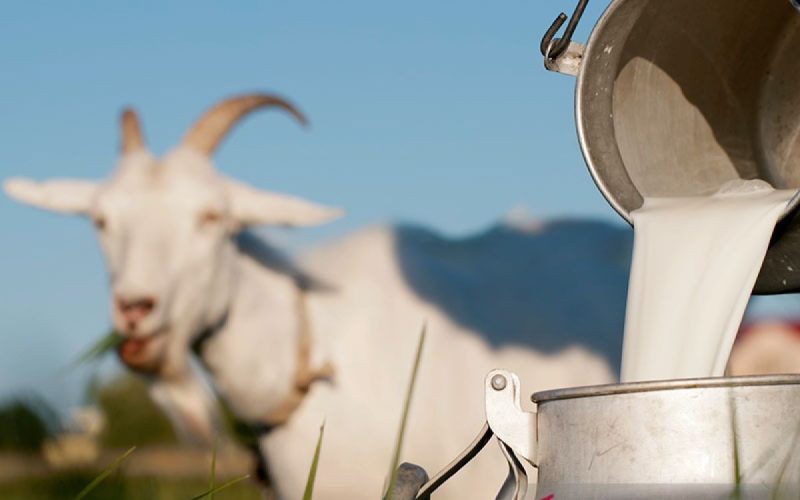Goat milk is highly nutritious and offers numerous health benefits. It is rich in essential vitamins and minerals such as calcium, phosphorus, magnesium, and vitamins A and D. Goat milk is also easier to digest compared to cow’s milk, making it an excellent option for those with lactose intolerance or sensitive digestive systems. Regular consumption of goat milk can support bone health, boost the immune system, and improve skin conditions.

BY STEFANI SASSOS, M.S., R.D.N., C.D.N., NASM-CPT
What Is Goat Milk and Is It Dairy Free ?
Any milk product by an animal is considered dairy, but depending on the animal there can be differences in nutrition profile and composition. Because of these differences, some people who are sensitive to one type of milk may tolerate another type of milk better. Goat milk comes from, you guessed it, goats and has a slew of health benefits that make it easier to digest for certain people that commonly have lactose-sensitivity. The flavor is overall mild, with a bit of an almost nutty flavor and earthy undertone. Goat milk is creamy and also has a gentle tang.

Goat Milk Vs Cow Milk Benefits :
- It’s easier to digest: According to experts at Meyenberg Goat Milk, goat milk is made up of very small fat particles which form a softer, smaller curd in the stomach. These small, soft curds are more quickly broken down by stomach enzymes, making it easier for the stomach to digest as compared to cow’s milk.
- It may work for those with lactose sensitivity: Although lactose is the main carbohydrate in dairy-based products, its content in goat milk is lower than other types of dairy. Experts at Meyenberg Goat Milk say that many people who react poorly to cow’s milk don’t have the same problems with goat milk.
- It has higher levels of beneficial fatty acids: Compared to cow’s milk, goat milk has substantially higher levels of short and medium-chain fatty acids.
Goat Milk Vs Nut Milk Benefits :
- It has more protein: Although dairy-free milk alternatives like almond milk are completely vegan, they often have little to no protein at all. Goat milk packs a hearty 8 grams of protein per cup.
- It’s loaded with calcium and other minerals: Goat milk is naturally an excellent source of calcium, magnesium, and potassium. Additionally, goat milk contains the precursor to vitamin A in the milk fat which allows it to be readily bioavailable. Plus, the bioavailability of minerals in goat milk is higher than that of cow’s milk.
- It’s nut-free and soy-free: If you are unable to tolerate cow’s milk, the other options on the market are often nut or soy based. Goat milk may be a better alternative to cow’s milk for you if you have a nut or soy allergy.
- It’s creamy and comparable to cow’s milk: Nut milks can often have a very watery consistency and don’t have the same properties as regular milk in certain recipes. Goat milk is creamy and has a similar consistency to cow’s milk, but with easier to digest properties.

How to Use Goat Milk :
Goat milk can be replaced 1:1 for milk products in any recipe. It blends well in shakes and smoothies, and makes the perfect addition to any latte. You can add goat milk to overnight oats, creamy soups, and even decadent sauces. Goat milk is also a great digestive-friendly substitute when baking. You can use goat milk butter in frostings and pastries, and goat milk itself makes a delicious ice cream if you have your own ice-cream machine at home.


